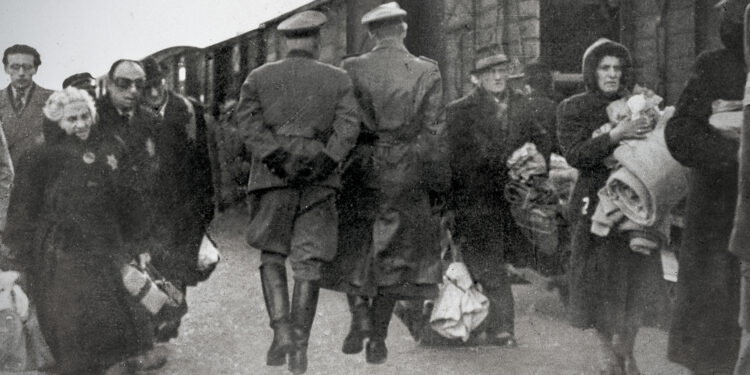In the midst of World War II, as the Nazi regime spread its dark shadow across Europe, a young girl’s voice emerged, immortalizing the horrors of the Holocaust. Anne Frank, a Jewish teenager, found herself in hiding with her family in Amsterdam, fearing the merciless Gestapo, the secret police of Nazi Germany, who were relentlessly hunting down Jews to implement the “Final Solution.”
Anne’s story began in 1942 when her family sought refuge in a secret annex above her father’s office. For two years, they lived in constant fear, isolated from the world outside. During this period, Anne found solace in her diary, pouring her thoughts and emotions into its pages. The diary became a vessel for her dreams, fears, and aspirations, as well as a chilling chronicle of the atrocities the Franks and millions of others faced under Nazi tyranny.
However, in August 1944, the Gestapo received an anonymous tip about a hidden Jewish family in Amsterdam. Acting swiftly, they stormed the secret annex, capturing the Frank family and their fellow companions. Anne’s powerful words and her poignant diary were left behind as a silent testament to the horrors she endured.
The family was transported to concentration camps, and Anne’s father, Otto Frank, was the sole survivor of the ordeal. He discovered Anne’s diary after the war and, moved by her words, decided to fulfill her wish of becoming a writer. The publication of “The Diary of a Young Girl” in 1947 introduced Anne’s story to the world, offering a vivid account of the suffering and resilience of those persecuted during the Holocaust.
Anne’s story became a symbol of hope and a stark reminder of the darkest chapters in human history. Her words touched hearts globally, inspiring generations to fight against hatred, discrimination, and persecution. Schools worldwide began teaching her diary, ensuring that her legacy would live on.
As the years passed, Anne Frank’s story transformed from a personal account into an enduring symbol of the human spirit’s triumph over adversity. Museums dedicated to her life and the Holocaust sprouted across the globe, ensuring that her memory would remain etched in the collective consciousness.
In the face of unimaginable brutality, Anne’s diary served as a beacon of hope, urging humanity never to forget the atrocities of the past and to strive for a future free from hatred and intolerance. Through the Gestapo’s discovery of Anne Frank and her story, the world was reminded of the importance of empathy, compassion, and the pursuit of a world where the darkness of the past never resurfaces.



Recent Comments